I am converting a string from hex to decimal. The problem is that in Visual Studio compiler the conversion returns a wrong value. However when I compile the same code in a Mac at the terminal using the g++ compiler, the value is returned correctly.
Why this is happening?
#include <string>
#include <iostream>
using namespace std;
int main()
{
string hex = "412ce69800";
unsigned long n = strtoul( hex.c_str(), nullptr, 16 );
cout<<"The value to convert is: "<<hex<<" hex\n\n";
cout<<"The converted value is: "<<n<<" dec\n\n";
cout<<"The converted value should be: "<<"279926183936 dec\n\n";
return 0;
}
output:
